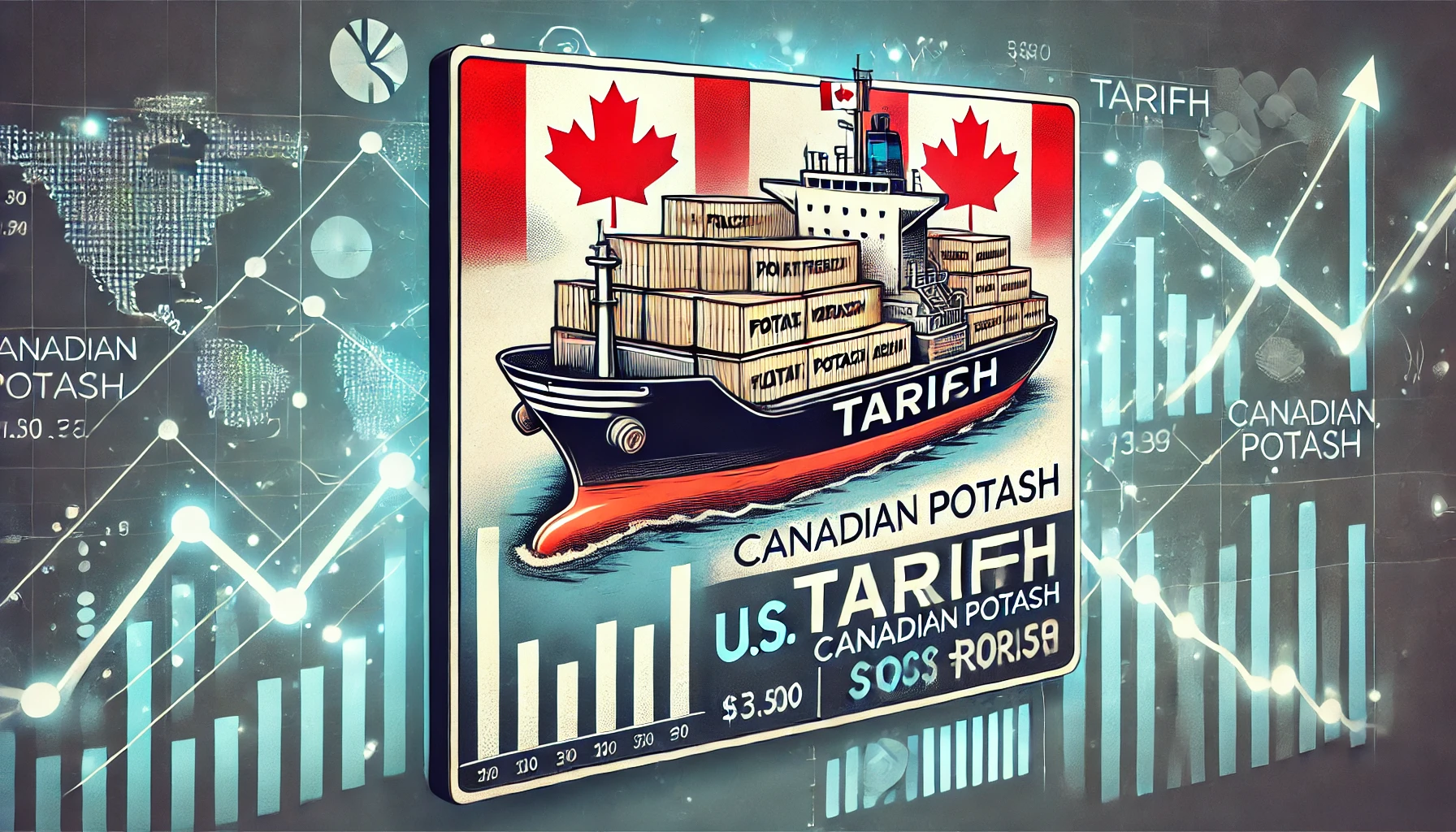The potash industry is poised for significant developments following the U.S. government’s decision not to exempt Canadian potash from Trump-era tariffs. This policy shift is more than just a geopolitical maneuver; it has profound implications for global food security, supply chains, and the profitability of companies involved in potash production and distribution. For investors, this represents both an opportunity and a challenge in navigating the complex landscape of agricultural inputs.
The Strategic Importance of Potash
Potash is a key nutrient used in fertilizers that enhance crop yield and food production worldwide. It is primarily composed of potassium, which strengthens plant roots, improves water retention, and boosts resistance to diseases. With the global population on the rise, the demand for agricultural efficiency is more crucial than ever. Potash plays a vital role in ensuring food security, making it a strategic commodity.
Why Now?
The decision to maintain tariffs on Canadian potash is expected to create supply chain disruptions, leading to potential price increases. Canada is the largest producer of potash globally, contributing approximately 30% of the world’s supply. With tariffs remaining in place, U.S. importers may look to alternative sources, affecting global trade dynamics and creating investment opportunities in non-Canadian potash companies.
Market Dynamics and Global Impact
Supply Chain Disruptions and Price Volatility
The U.S. heavily relies on Canadian potash imports, but the tariff continuation may compel American importers to diversify their supply chains. This shift could benefit U.S.-based potash producers and other international suppliers not subject to tariffs. As supply chains realign, investors should anticipate potential price volatility and shifts in market share.
Geopolitical Tensions and Trade Policies
This tariff decision is not just an economic measure; it’s also a geopolitical statement amid growing tensions between North America and other global powers influencing agricultural markets, such as Russia and Belarus. These countries are significant potash exporters, and any sanctions or political conflicts could further tighten global supply.
Environmental and Regulatory Challenges
Environmental regulations also impact the potash industry. Mining and processing potash require substantial energy and water resources, leading to scrutiny from environmental agencies. Investors must consider the regulatory landscape when evaluating potash companies, as stricter environmental policies could impact production costs.
Why Investors Should Care
Rising Demand and Limited Supply
The growing global population, increasing food consumption, and rising demand for biofuels are driving the demand for fertilizers. However, limited arable land necessitates the use of potash to enhance crop yields. This imbalance between demand and supply creates a lucrative opportunity for potash producers.
Inflation Hedge and Portfolio Diversification
Potash is a critical commodity whose demand remains relatively inelastic, even during economic downturns. Investing in potash stocks can provide a hedge against inflation and offer portfolio diversification, particularly in an uncertain economic environment.
Strategic Mergers and Acquisitions
The potash industry is witnessing consolidation as companies seek to secure their supply chains and increase market share. Strategic mergers and acquisitions could lead to enhanced operational efficiencies and greater pricing power, benefiting shareholders.
The Road Ahead: Investment Opportunities and Risks
Opportunities
- Price Appreciation: With tariffs creating supply constraints, potash prices are likely to rise, benefiting producers.
- Increased M&A Activity: Companies may seek to consolidate to enhance supply chain security and operational efficiencies.
- Sustainability and ESG Investing: Companies adopting sustainable mining practices will attract ESG-focused capital.
Risks
- Geopolitical Instability: Political tensions in key producing countries could disrupt supply.
- Regulatory Changes: Environmental regulations could impact production costs.
- Currency Fluctuations: As a globally traded commodity, potash prices are sensitive to currency exchange rates.
Final Thoughts
The potash industry stands at a critical juncture, influenced by geopolitical decisions, environmental considerations, and rising global food demand. Investors who recognize the strategic importance of potash and navigate the complex market dynamics will find compelling opportunities for growth and portfolio diversification.
As the market continues to evolve, these five companies—American Critical Minerals, Nutrien Ltd., Mosaic Co., Intrepid Potash, and K+S AG—are strategically positioned to benefit from the shifts in supply chains and global demand. Keep a close watch on these stocks and consider the broader macroeconomic and geopolitical trends influencing the potash market.
Stay informed and ahead of market trends by following MoneyNews.Today for more insights and investment opportunities.





